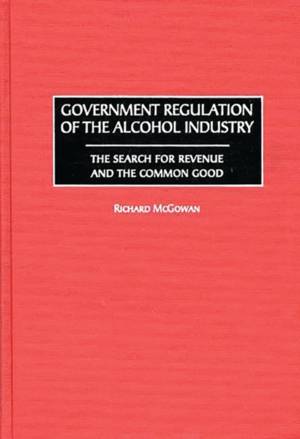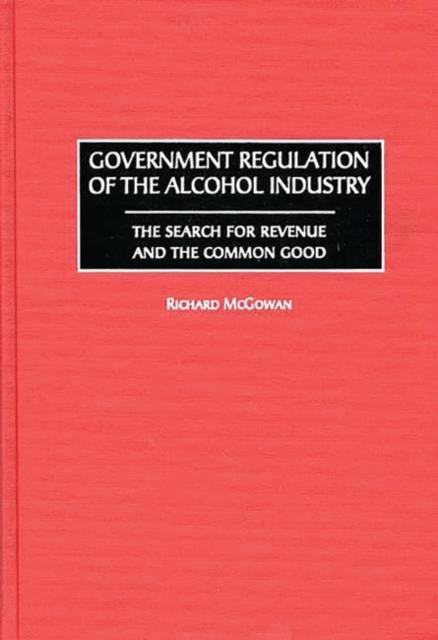
- Afhalen na 1 uur in een winkel met voorraad
- Gratis thuislevering in België vanaf € 30
- Ruim aanbod met 7 miljoen producten
- Afhalen na 1 uur in een winkel met voorraad
- Gratis thuislevering in België vanaf € 30
- Ruim aanbod met 7 miljoen producten
Zoeken
Government Regulation of the Alcohol Industry
The Search for Revenue and the Common Good
Richard McGowan
Hardcover | Engels
€ 161,45
+ 322 punten
Omschrijving
This is the third book in what the author calls his sin trilogy: the gambling, tobacco, and alcohol industries. Similar to the gambling and tobacco industries, the alcohol industry is one in which the business and public policy processes are intimately linked. Furthermore, it is a highly regulated industry whose very existence depends upon the will of government at all levels and branches. What all the industries share is that they are viewed as a painless source of revenue for government. The alcohol industry is composed of three segments, namely beer, distilled spirits, and wine, each with a distinct product and market. Since the end of Prohibition, public policy makers have developed a certain tolerance for alcohol products, but they continue to grapple with the question of how to deal with the alcohol problem. While the author updates the current structure and strategies of competition among these industries, his primary rationale for doing so is to analyze how these industries react to increased public scrutiny of their business activities. The other unique feature of this book is its emphasis on how public policy measures affect the sale of beer, distilled spirits, and wine at the state level.
Specificaties
Betrokkenen
- Auteur(s):
- Uitgeverij:
Inhoud
- Aantal bladzijden:
- 192
- Taal:
- Engels
Eigenschappen
- Productcode (EAN):
- 9781567200348
- Verschijningsdatum:
- 26/08/1997
- Uitvoering:
- Hardcover
- Formaat:
- Genaaid
- Afmetingen:
- 163 mm x 244 mm
- Gewicht:
- 449 g

Alleen bij Standaard Boekhandel
+ 322 punten op je klantenkaart van Standaard Boekhandel
Beoordelingen
We publiceren alleen reviews die voldoen aan de voorwaarden voor reviews. Bekijk onze voorwaarden voor reviews.











